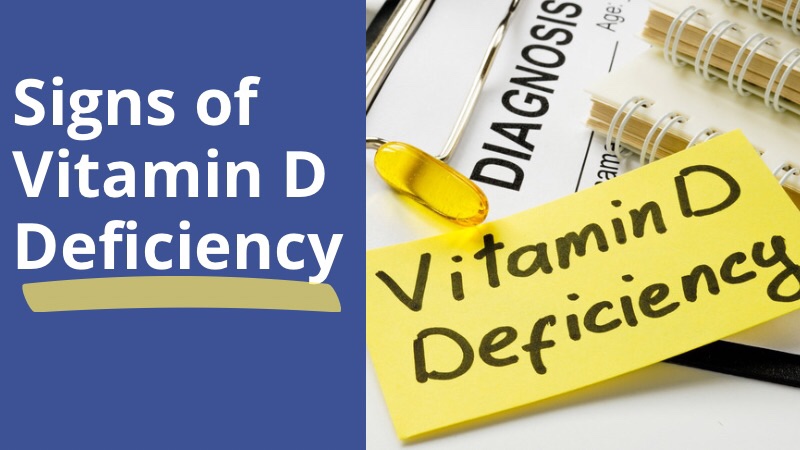
Recognizing the Signs of Vitamin D Deficiency
Vitamin D, a critical nutrient responsible for numerous bodily functions, is unique in that our bodies can produce it when our skin is exposed to sunlight. Yet, despite this seemingly simple source, a significant portion of the global population is deficient in this essential nutrient 1. Here, we delve into the common signs and symptoms of vitamin D deficiency to help you recognize if you may be lacking in the ‘sunshine vitamin’.
1. Frequent Illness or Infections
One of the key roles of vitamin D is supporting the immune system. It helps your body to fight off bacteria and viruses. Therefore, if you find yourself getting sick often, especially with colds or the flu, low vitamin D levels could be a contributing factor 2.
2. Fatigue and Tiredness
Feeling tired can have many causes, but vitamin D deficiency is often overlooked. A lack of this nutrient may leave you feeling exhausted, even after adequate sleep. In fact, there are numerous documented cases where vitamin D deficiency has led to chronic fatigue syndrome 3.
3. Bone and Back Pain
Vitamin D is essential for bone health since it helps with the absorption of calcium. So, its deficiency might lead to lower back pain or pain in the bones, particularly in the legs and joints 4.
4. Depression
Some studies have found that vitamin D deficiency is linked to depression, especially in older adults. It’s believed that vitamin D plays a role in mood regulation and warding off depression 5.
5. Impaired Wound Healing
If you find that wounds from injuries or surgery take a long time to heal, it could indicate a deficiency in vitamin D. This nutrient plays a crucial role in skin regeneration and the body’s inflammatory response to injury 6.
6. Bone Loss
Vitamin D is essential for calcium absorption. Therefore, a deficiency can lead to lower bone mineral density, signaling a lack of bone mass and an increased risk of bone fractures 7.
7. Muscle Pain
There is a potential link between chronic muscle pain and vitamin D deficiency. This nutrient plays a role in supporting muscle function, and its deficiency can lead to discomfort and weakness 8.
In conclusion, Vitamin D deficiency can often go unnoticed until it manifests through various symptoms. If you recognize these signs and suspect you might be deficient, it’s essential to consult a healthcare provider. They may recommend a simple blood test to confirm if you are indeed deficient in vitamin D and suggest appropriate steps to correct it.
Remember, prevention is better than cure. Therefore, understanding the sources of vitamin D and incorporating them into your daily routine is a good way to maintain optimal levels of this vital nutrient.
References:
- Vitamin D deficiency: a worldwide problem with health consequences.
- Vitamin D and the Immune System.
- Chronic fatigue syndrome and idiopathic chronic fatigue: the role of infections and immune system.
- Vitamin D and spinal health.
- Vitamin D deficiency and depression in adults: systematic review and meta-analysis.
- Vitamin D and Skin Repair: A Prospective, Double-Blind and Placebo Controlled Study in the Healing of Leg Ulcers.
- Bone density and vitamin D status among African American children with forearm fractures.
- Does vitamin D deficiency play a role in peripheral neuropathy in Type 2 diabetes?



